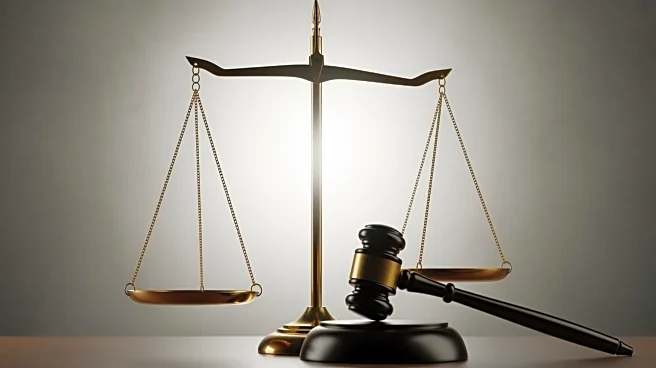What's Happening?
Senator Lisa Murkowski has joined congressional Democrats in filing a brief with the Supreme Court challenging President Trump's authority to impose tariffs under the International Emergency Economic Powers Act (IEEPA). The brief argues that President Trump has overstepped
his constitutional authority by using IEEPA to impose tariffs, a power traditionally reserved for Congress. The court is set to hear two cases related to this issue, with companies like Learning Resources and hand2mind claiming that the tariffs could cost them $100 million this year. The IEEPA, enacted in 1977, allows the president to address threats to national security, foreign policy, or the economy by declaring a national emergency. However, the brief contends that tariffs have never been imposed under this statute, suggesting that it does not authorize such measures.
Why It's Important?
The challenge to President Trump's use of IEEPA to impose tariffs is significant as it questions the extent of presidential power in trade matters. If the Supreme Court rules against Trump, it could limit the executive branch's ability to unilaterally impose tariffs, potentially impacting U.S. trade policy and international relations. This case also highlights the ongoing debate over the balance of power between Congress and the presidency, particularly in economic and foreign policy. Businesses and states affected by the tariffs stand to gain if the court restricts the president's authority, potentially leading to more stable market conditions and reduced costs for consumers.
What's Next?
The Supreme Court is scheduled to hear arguments in the cases on November 5. The outcome could set a precedent for how IEEPA is interpreted in relation to trade measures. Political leaders and businesses are likely to closely monitor the proceedings, as a decision could influence future trade policies and the president's ability to respond to national emergencies with economic measures. The ruling may also prompt legislative action to clarify or amend the powers granted under IEEPA.
Beyond the Headlines
The legal challenge against President Trump's use of IEEPA to impose tariffs raises broader questions about the separation of powers and the role of emergency powers in governance. It underscores the tension between executive authority and legislative oversight, particularly in areas affecting the economy and international trade. The case could lead to discussions on the need for clearer guidelines on the use of emergency powers and the potential for abuse in circumventing congressional authority.

















